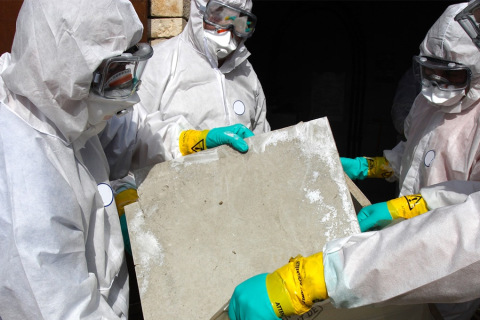
$3.8M Verdict Awarded in Foster Wheeler Mesothelioma Lawsuit
Legislation & LitigationWritten by Travis Rodgers | Edited By Amy Edel

A Pennsylvania jury has found Foster Wheeler Corporation liable and awarded the plaintiff a $3.8 million mesothelioma verdict. A lawyer for the plaintiff argued defendant Foster Wheeler failed to protect employees from asbestos. Evidence presented in the case indicated the company didn’t adhere to Occupational Safety and Health Administration regulations.
Plaintiff Harry Chirdon spent approximately 10 weeks working for the company during his decades-long career as a boilermaker. Foster Wheeler began as a manufacturer of equipment for the power industry, Navy and Merchant Marines, including large industrial boilers and boiler components. It grew to become an engineering conglomerate. AMEC purchased the company in 2014 and Wood Group then bought AMEC Foster Wheeler in 2017.
Doctors diagnosed Chirdon with mesothelioma. He had lung surgery at the University of Pittsburgh Medical Center. Lawyers for the 76-year-old from Altoona, Pennsylvania, described his surgery as a “surgical resection.” During this type of mesothelioma surgery, part or all of the affected lung may be removed.
David Halpern, managing attorney for the plaintiff’s law firm noted in a statement: “This verdict is a powerful affirmation of justice. I am grateful for the trust my clients placed in me and proud to advocate for what is right.”
Plaintiff attorney Chris Madeksho added, “This verdict tells his family that his community sees him as a man worth respect, worth caring for.”
Boiler Work and Other High Risk Occupations
Asbestos exposure is the No. 1 cause of work-related deaths worldwide. And occupational exposure is the primary cause of mesothelioma. Both boilermakers and boiler workers are at high risk for asbestos-related illnesses.
Asbestos was commonly used in boilers for its heat resistance. The toxic mineral was added to insulation that wrapped the outside of the boiler to help it retain heat. Boiler workers often had to cut into this asbestos insulation, releasing fibers into the air. These fibers could be inhaled and lead to the development of mesothelioma.
Many boilers today may still contain legacy asbestos insulation. A number of occupations still pose a risk of exposure to legacy asbestos.
Some of the most at-risk jobs for asbestos exposure are construction, firefighting, industrial work, the military, power plant operations and shipyard work. The U.S. Environmental Protection Agency and OSHA regulate asbestos in the workplace. Employees may file a report with OSHA if they suspect working conditions aren’t safe.
Boiler Workers and a Recent Asbestosis Study
Exposure to asbestos is widely recognized as the primary cause of mesothelioma and other asbestos-related diseases such as asbestosis. A new study from experts at Duke University looks at the connection between occupational exposure and asbestosis diagnoses since 2001.
The study’s authors define asbestosis as “diffuse pulmonary fibrosis caused by inhalation of asbestos fibers” that “occurs after heavy exposures to asbestos dust over several decades.” This means it’s a disease that develops when the lungs are scarred and damaged from inhaling asbestos fibers.
Of the 102 asbestosis patients they studied, 8 cases were related to boiler work. There was a wide range of asbestos exposure time among the studied patients. The authors write, “The median duration of exposure was 33 years (range: 2-49 years).”
- Insulators (39)
- Shipyard workers (16)
- Asbestos manufacturing (9)
- Boiler workers (8)
- Pipefitter/welders (6)
Asbestosis itself doesn’t cause cancer, but because its cause is asbestos exposure, it can signal other asbestos-related diseases may also develop. Among the patients in the Duke study, 94% also had pleural plaques. Among the 102 asbestosis patients there were also 38 cases of lung cancer, 29 cases of pleural mesothelioma and 8 cases of peritoneal mesothelioma.






